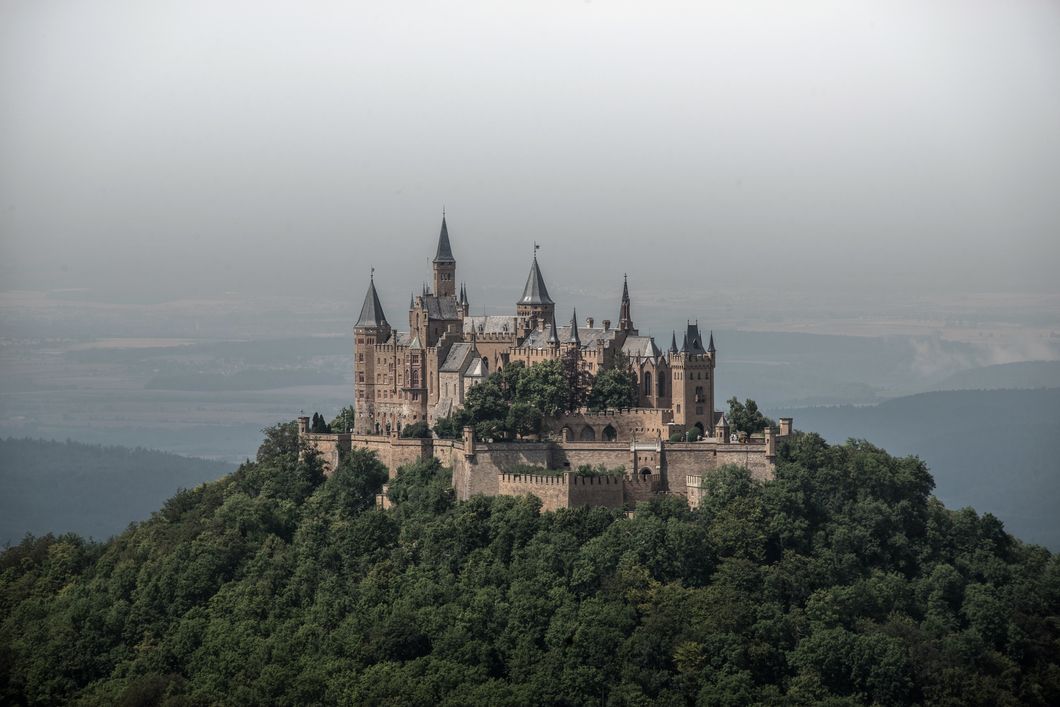You might be marvelling at Munich's magnificent baroque palaces one day, and wandering around. Hamburg's trendy, redeveloped HafenCity the next. Meanwhile, in hip Berlin historic sites like the Brandenburg Gate blend effortlessly with contemporary art galleries.
1. Berlin

Berlin Under Starry Sky photo
unsplash.com
The capital is maybe Germany's most prevalent city break destination. Since Germany's reunification in 1990, Berlin has developed as a Catholic and exciting city, pressed with rousing craftsmanship, design, and entertainments. History is a vital portion of Berlin's character – don't miss the typical Brandenburg Gate and the Jewish Gallery which are strong updates of the Cold War and World War II. Berlin may be a superb put to wander around at recreation, and strolling is a perfect way the most perfect way to soak up the environment.
Each area in and around the city middle has its claim personality – from Mitte with its must-see sights and markets to stylish Kreuzberg, with its plenitude of bars and restaurants. Tiergarten is overwhelmed by the green stop of the same title whereas Charlottenburg is a popular retail locale and domestic to Schloss Charlottenburg, the biggest regal royal residence in Berlin total with lovely gardens and forest.
2. Munich

City, church, cathedral and dome HD photo
unsplash.com
Bavaria's capital is the door to the Alps and makes a great city break sometime recently set off to the mountains advertising world-class historical centers, castles and conventional German architecture too. For a taste of Munich's neighborliness and world-renowned lager, a visit in October for the world-famous Oktoberfest could be a must.
Whereas reservations for the celebration are fitting, you'll get a situate ad-hoc at off-peak times like weekday mornings Other attractions incorporate the Deutsches Museum (Transport Historical center), the Residenzmuseum, domestic to Bavaria's Wittelsbach rulers from the early 1500s, the Schönheitengalerie (Exhibition of Wonders) for representations, in expansion to the perpetual shopping and dining openings that Munich has got to offer.
3. Frankfurt

Frankfurt am Main Hauptwache photo by Christian Salow
Frankfurt is the monetarymiddle of Germany, which accounts for its concentration of gleaming skyscrapers.
But Frankfurt is noteworthy as well and a journey down the Waterway Primary gives a great perspective of the city's movement, past the advanced sprawl and onwards to the conventional buildings of the city's Exhibition hall Dike.
Museums abound – Städel, Historisches Museum, Jüdisches-Museum, Senckenberg Naturmuseum, Geldmuseum der Deutschen Bundesbank to name but a few – while other cutting-edge artistic attractions like the Orfeos Erben independent cinema help define Frankfurt as a modern and innovative city.
Frankfurt boasts plenty of all-night fun, from trendy cafes and bars to clubs with jazz and dancing to keep you entertained well into the small hours. The nearby vineyards and spa towns like Wiesbaden are easy to reach, making Frankfurt ideal if you want to stay around for more than just a short city break.
4. Hamburg

Hafen City photo by Claudio Testa on Unsplash
unsplash.com
Germany's second largest city boasts one of the biggest ports on the planet, earning it the nickname 'Gateway to the World'. Amazingly, Hamburg also has more bridges than Amsterdam and Venice put together, thanks to several waterways running through its centre.
Hamburg is the nation's greenest city with two-thirds of its area covered by lakes or parkland, ideal for walking and cycling. Head to the vast Planten un Blomen botanical gardens and admire their abundance of fountains, lakes, lawns, and flowers. Greenery aside, Hamburg's Reeperbahn is where the Beatles played in the 1960s and its nightlife and live music scene is still renowned today.
You will find UNESCO wonders in Speicherstadt and the nearby Kontorhaus district, the largest historic development of port warehouses in the world. Meanwhile, the innovative, sustainable all-wood Wälderhaus (Forest House) is a shining example of Hamburg's environmentally sound outlook.
5. Cologne

Cologne cathedral photo by Dominik Kuhn
unsplash.com
Founded by the Romans, Cologne is one of Germany's oldest cities. The iconic filigree spires of its famous UNESCO-listed cathedral, Kölner Dom, soar elegantly over the city. From beer gardens and river cruises to Cologne Zoo and Cologne Aquarium, there's plenty to keep you busy.
If you prefer a leisurely stroll through the city, you'll come across the ancient Roman wall and an abundance of medieval churches as well as magnificent avant-garde edifices and contemporary art.
There's an abundance of museums and galleries too: the Chocolate Museum (Schokoladenmuseum); the Roman-Germanic Museum and its Roman mosaics and relics; the German Sport and Olympic Games Museum; the Cologne Museum of Applied Art; and the Holography Museum are some of the most popular.
And if you can't make to Cologne's carnival, Düsseldorf's carnival in February is the next best thing.
















